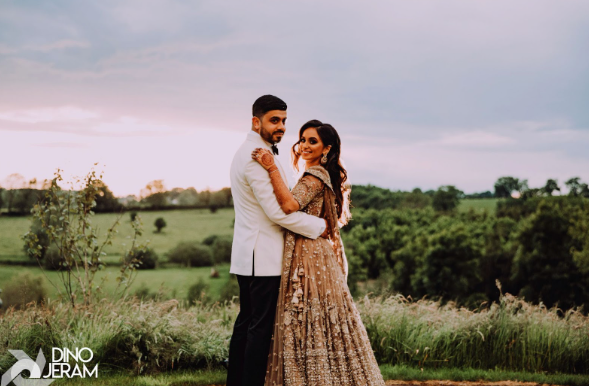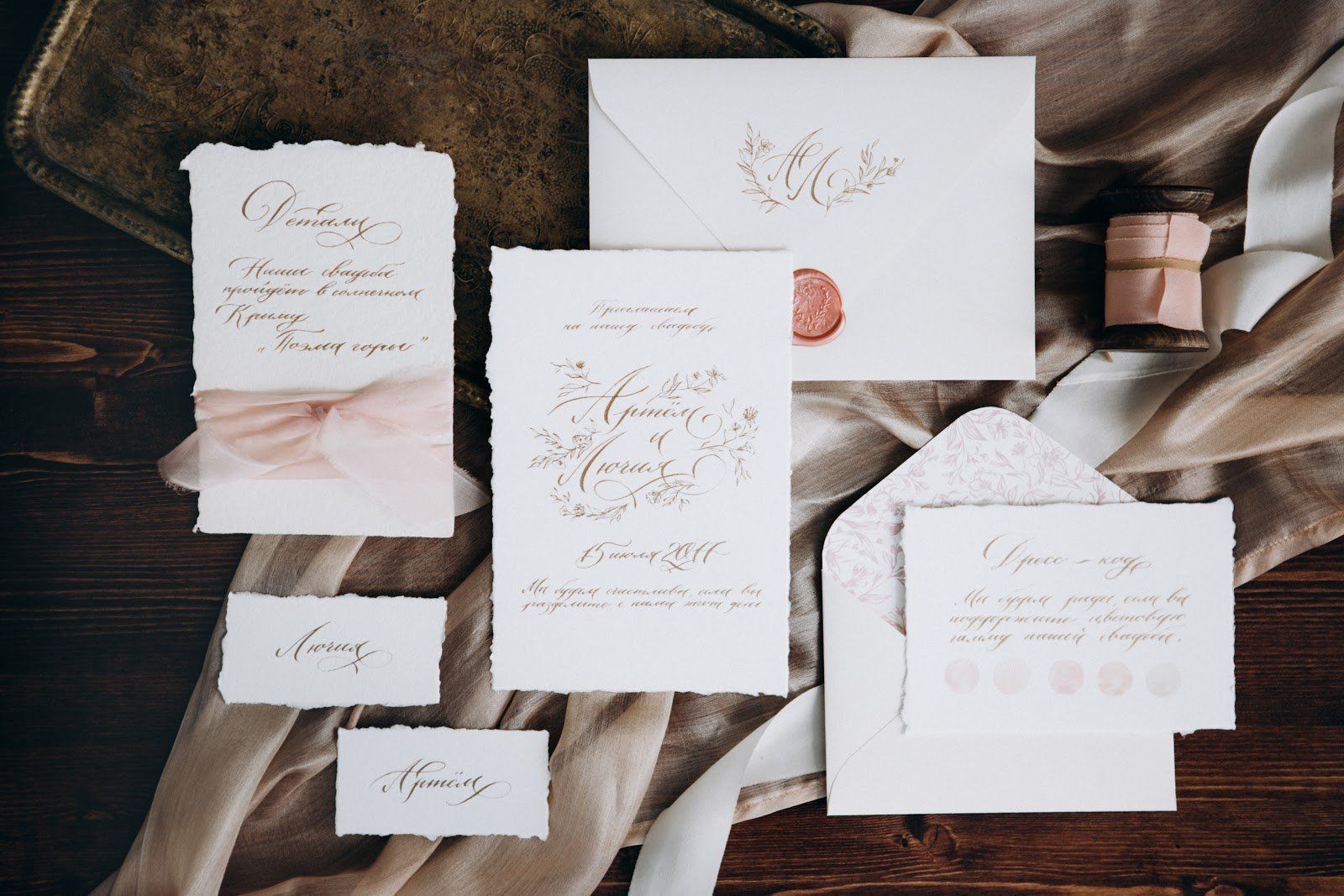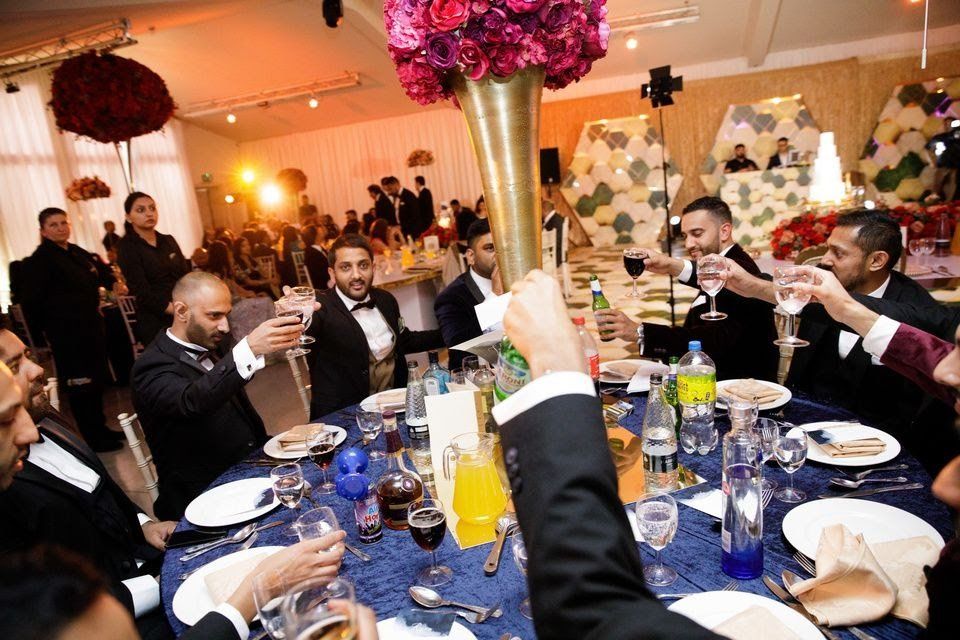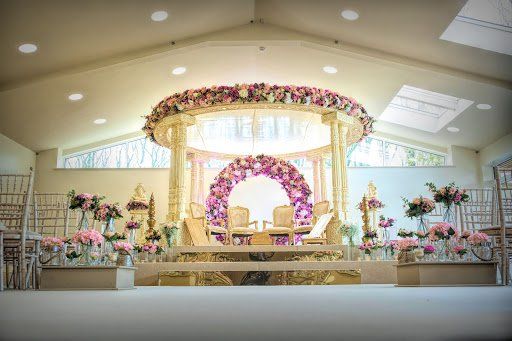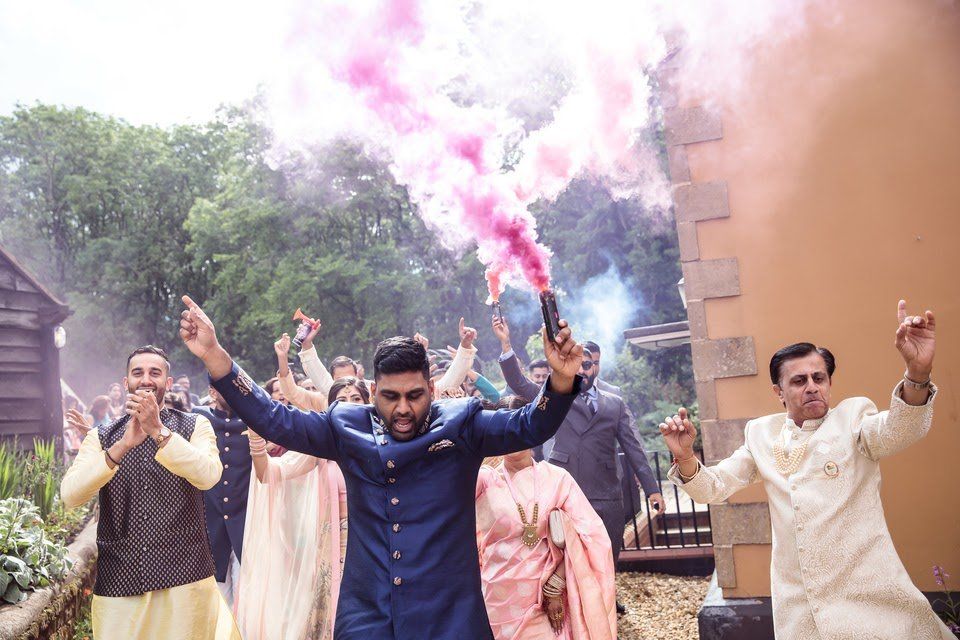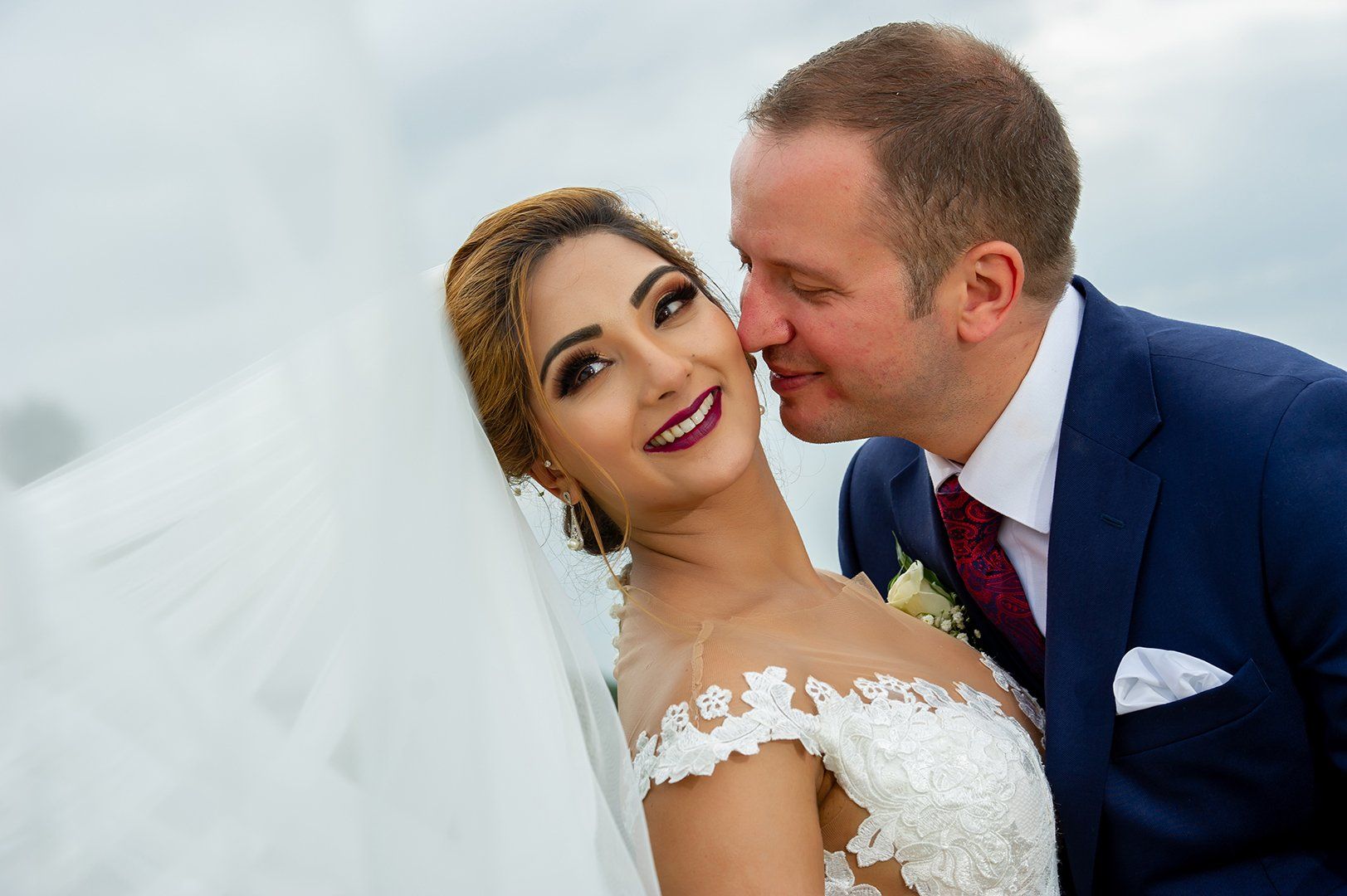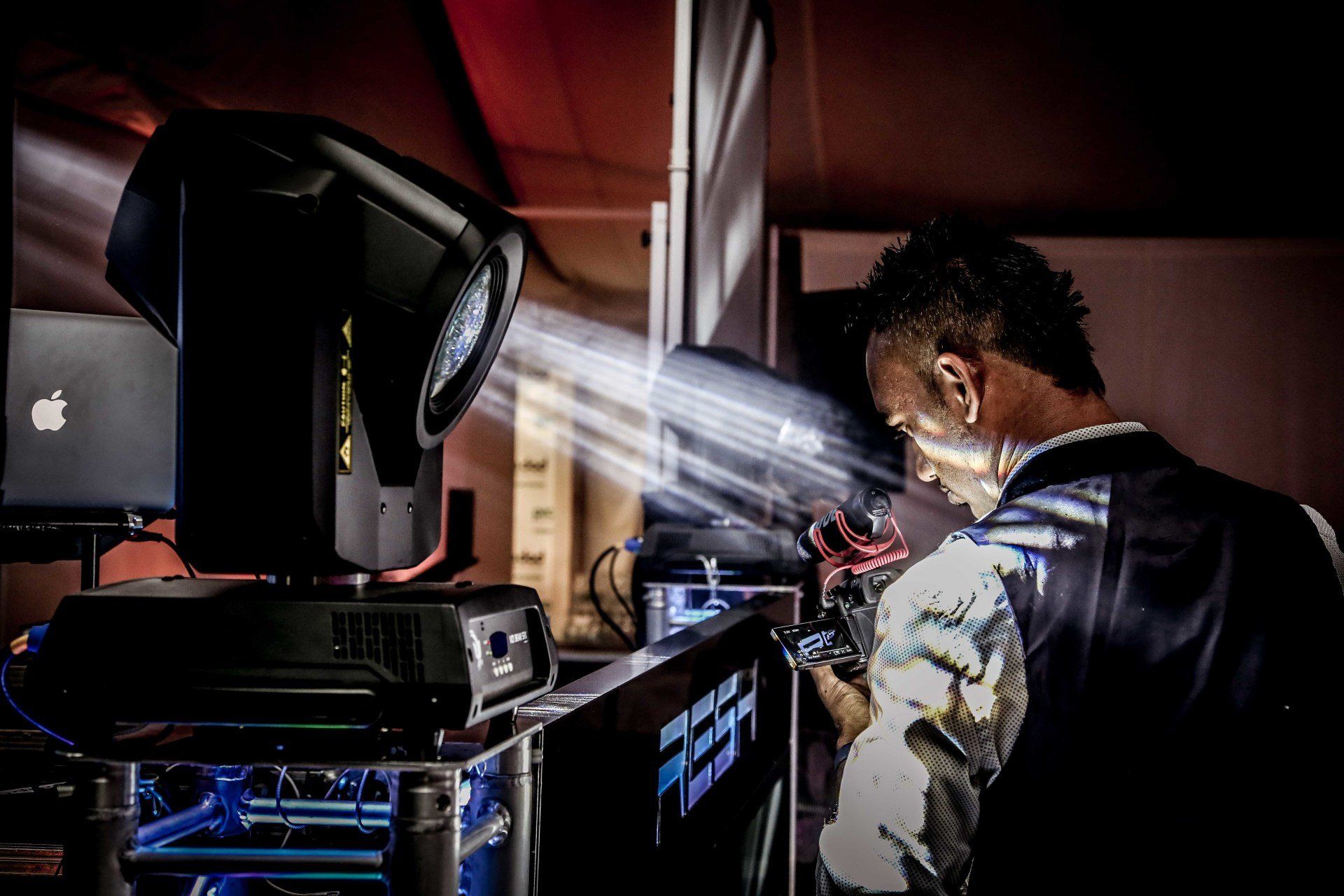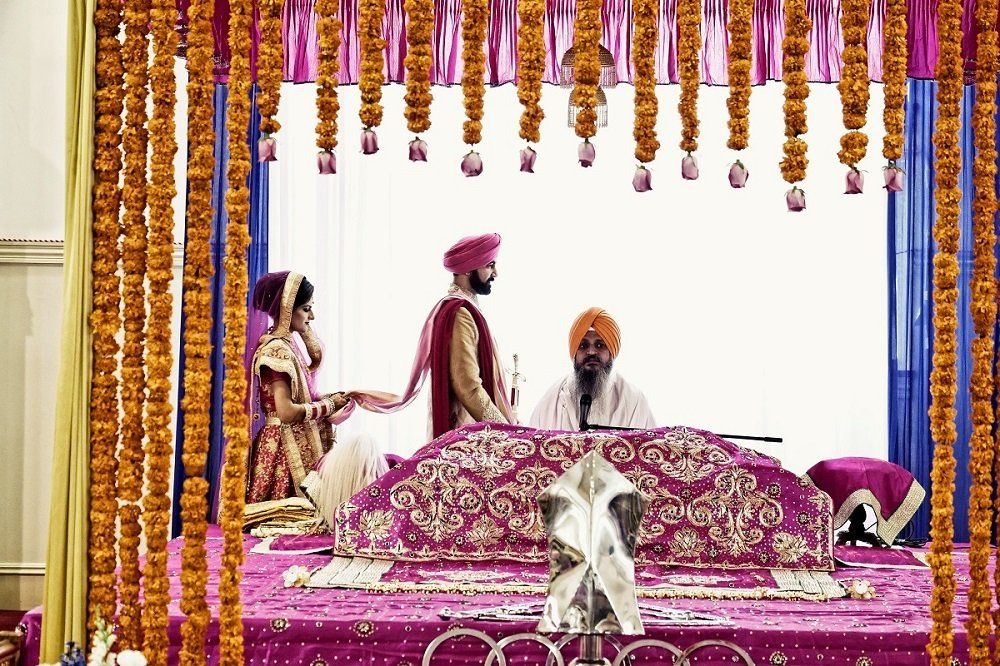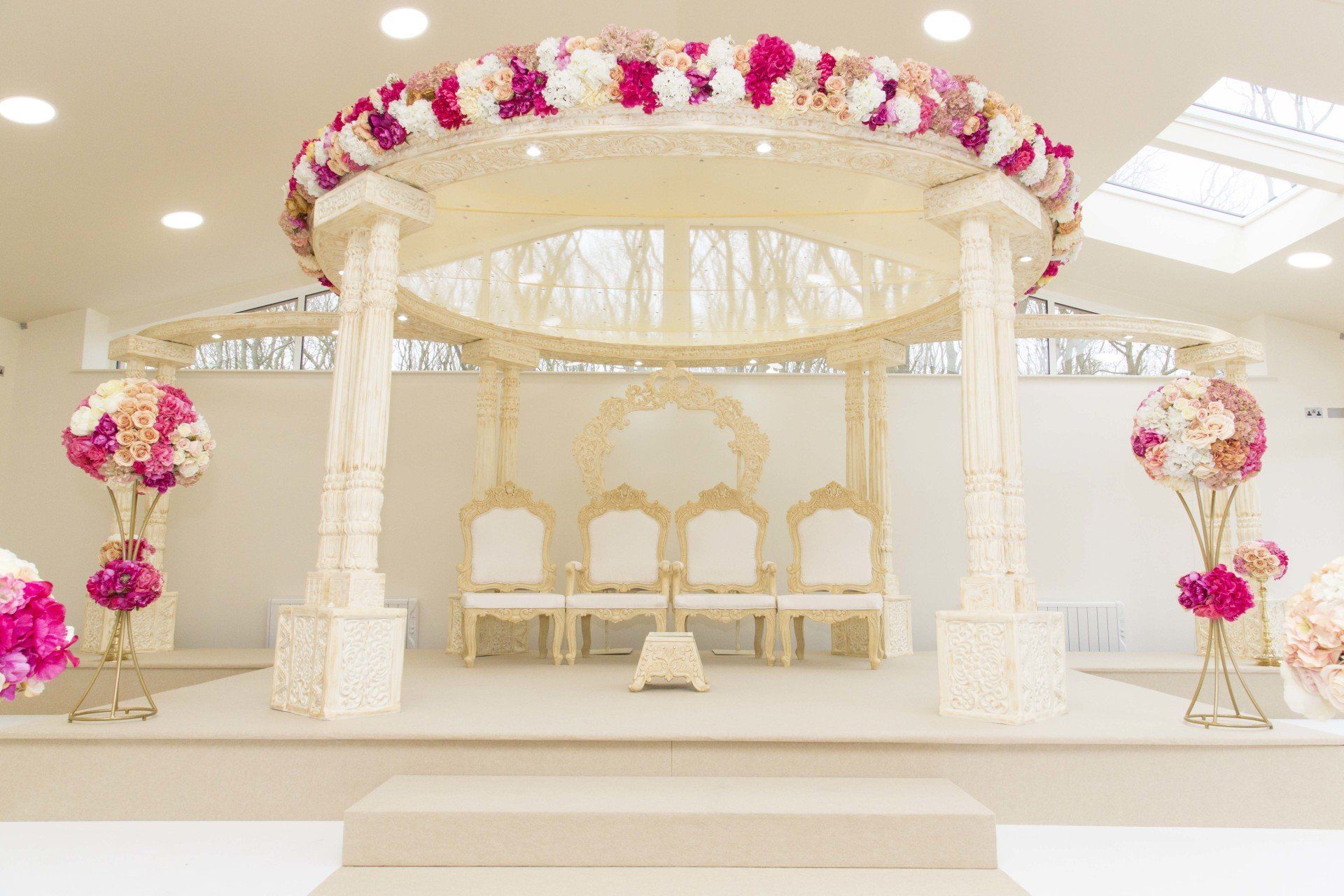The Ultimate Muslim Wedding Guide
- by Digital Ethos
- •
- 12 Dec, 2024
- •
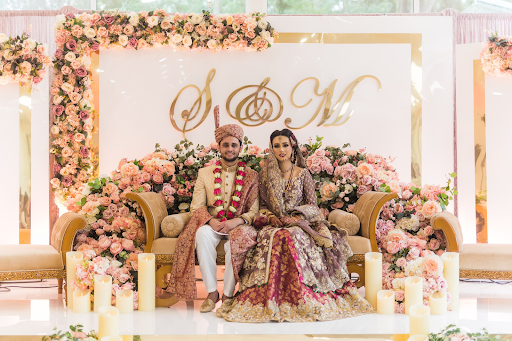
Muslim weddings, known as nikah, are joyous celebrations that blend religious significance with cultural traditions. While the core principles remain consistent across the Islamic world, the specific customs and rituals can vary widely depending on cultural background, geographical location, and family traditions. This comprehensive guide aims to provide an in-depth look at Muslim weddings, covering everything from religious requirements to cultural practices, planning tips, and modern trends.
Whether you're a bride or groom preparing for your own wedding, a family member involved in the planning process, or simply curious about Muslim wedding traditions, this guide will offer valuable insights into the beautiful and diverse world of Islamic marriages.
Pre-Wedding Rituals
Muslim weddings often involve several pre-wedding rituals, which can vary significantly based on cultural traditions. Here's an expanded look at some common pre-wedding events:
Proposal (Khitbah)
Traditionally, the marriage proposal process begins with the groom's family visiting the bride's family to propose marriage formally. In contemporary times, this may occur after the couple has already expressed mutual interest in marrying each other, reflecting evolving social norms.
Etiquette plays an important role in this process. It is customary for the groom's family to bring gifts for the bride's family. These gifts, which may include sweets or flowers, serve as a gesture of goodwill and respect, helping to establish a positive relationship between the two families.
During this visit, families engage in discussions about compatibility, plans, and any potential concerns that may arise regarding the union. These conversations are crucial for ensuring that both families are on the same page and that the couple is well-prepared for their future together.
In some cases, families may perform or request Istikhara, the Islamic prayer of guidance, before deciding. This practice reflects the importance of seeking divine guidance in the decision-making process, reinforcing the significance of faith in the journey toward marriage.
Engagement (Mangni/Nisbah)
Once both families reach an agreement, an engagement ceremony is often held. While this event is not religiously mandated, it is a widely practised cultural tradition that signifies the commitment between the couple and their families.
A pivotal moment during the engagement ceremony involves the exchange of rings. This practice is common in many cultures and symbolises the couple's intention to marry; however, it is important to note that ring exchange is not an Islamic requirement.
The event typically begins with a recitation from the Quran, setting a spiritual tone for the gathering. This recitation blesses the occasion and emphasises the importance of faith in the couple's journey ahead.
As the ceremony unfolds, elders from both families bless the couple. Their words of wisdom and encouragement provide a strong foundation for the couple as they embark on this new chapter in their lives.
The engagement period can vary significantly, lasting anywhere from a few weeks to several months or even years. This flexible timeline allows the couple and their families to prepare for the upcoming wedding and solidify their commitment to one another.
Henna Night (Mehndi)
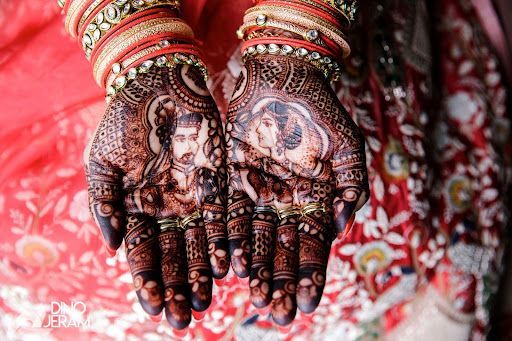
The Henna Celebration typically occurs a day or two before the wedding as a beautiful prelude to the main event. This occasion is primarily female-centric, gathering the bride’s closest friends and family. However, men may also be included in the festivities in some cultures, adding to the joyous atmosphere.
A central highlight of the celebration is the application of intricate henna designs on the bride's hands and feet. Skilled artists create elaborate patterns that are stunning and carry deep cultural significance. The darkness of the henna is often playfully associated with the strength of the couple's love or the affection of the mother-in-law, symbolising the bonds of family and marriage.
The celebration is filled with music, dance, and feasting, creating a lively and festive environment. Guests come together to celebrate the bride, enjoying traditional songs and dances that enhance the joy of the occasion. This event is not just a preparation for the wedding but also a cherished opportunity for loved ones to come together to celebrate love and unity.
Planning Tip! |
For your Henna Celebration, a great way to make it extra special is by personalising the music. Along with the traditional songs, mix in some of your favourite modern tracks—ones that hold special meaning to you or your relationship. Maybe even ask your family and friends to suggest songs that remind them of happy moments with you. This way, the celebration will feel more personal, and every song will bring back beautiful memories. |
Bridal Shower (Joota Chupai)
The bridal shower is a concept that mirrors Western tradition but is infused with unique cultural elements that make it special. This gathering serves as a joyful occasion for celebrating the bride-to-be, bringing together her friends and family to offer support and encouragement as she embarks on her new journey.
One key aspect of this celebration is gift-giving. Guests typically bring presents for the bride, which are intended to help her set up her new home. These thoughtful gifts symbolise love and support and reflect the cultural significance of the bride's transition into married life.
In addition to the gift exchange, traditional games are often played during the shower. These games frequently include good-natured teasing of the groom, adding a playful element to the festivities. Laughter and camaraderie fill the air as guests participate in fun activities that strengthen their bonds and create lasting memories.
Another important component of the bridal shower is sharing advice and blessings. Married women, often relatives or close friends, take the opportunity to impart their wisdom and experiences to the bride. This exchange provides guidance and reinforces the sense of community and support surrounding the bride as she prepares for her marriage.
Groom's Celebration (Dholki/Sangeet)
The Groom's Celebration, commonly known as the Dholki or Sangeet, is a lively event often hosted at the groom's home. This celebration sets the tone for the upcoming wedding, bringing together family and friends to partake in joyous festivities.
During the Dholki/Sangeet, guests sing traditional wedding songs while accompanied by the rhythmic beats of the dholak, a type of drum. The atmosphere is filled with music and laughter, creating a vibrant ambience that enhances the excitement leading up to the wedding day.
Participation in this event is essential, as it brings loved ones together to celebrate and bond over shared cultural traditions. The celebration can take place over a single night or be spread out across several days, allowing ample time for everyone to enjoy the festivities and prepare for the momentous occasion ahead.
Pre-Wedding Rituals Specific to Cultures
Mayun (Pakistani tradition): A ceremony where the bride is secluded and beautified for several days before the wedding.
Sadaq (Arab tradition): A formal engagement ceremony where the mahr is often discussed and agreed upon.
Kina Gecesi (Turkish tradition): Similar to henna night, but with specific Turkish customs and rituals.
The Nikah Ceremony (Wedding Ceremony)
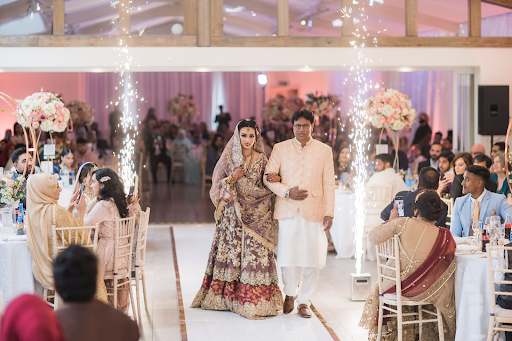
The Nikah is the heart and soul of a Muslim wedding, a sacred and deeply meaningful ceremony that marks the official union of two souls in the eyes of Allah and the community. This momentous occasion is not merely a legal contract; it is a profound spiritual commitment that binds the couple together for a lifetime of love, support, and shared dreams.
Nikah Ceremony Structure
Opening
The ceremony typically begins with a recitation from the Quran, enveloping the gathering in a serene atmosphere of spirituality and reflection. The verses echo through the space, reminding everyone t of the divine presence that blesses this sacred union. The recitation sets the tone for the event, creating a moment of connection with Allah as the couple prepares to take a significant step in their lives.
Khutbah
Following the opening recitation, the Imam or officiant delivers a short sermon known as the Khutbah. This poignant address underscores the importance of marriage in Islam, highlighting its role as a sacred bond that unites two individuals and fosters compassion, mutual respect, and commitment. The words spoken during this time resonate deeply with the couple and their loved ones, serving as a guiding light as they embark on their shared journey. It is a reminder that marriage is a celebration of love and commitment to faith and family.
Ijab and Qubul
The heart of the Nikah lies in the exchange known as Ijab and Qubul. The groom takes the first step by proposing marriage, saying “Ijab,” which signifies his intent to unite in matrimony. This moment is filled with anticipation and emotion as all eyes turn to the bride, who gracefully responds with her acceptance, uttering “Qubul.” This beautiful exchange is more than words; it is a profound affirmation of their love and commitment. The significance of this moment cannot be overstated, as it must be witnessed by those present, reinforcing the communal aspect of their union and the support of family and friends.
Mahr Declaration
Following the Ijab and Qubul, the agreed-upon mahr is publicly stated. The mahr, a mandatory gift from the groom to the bride, symbolises respect and commitment. This declaration is crucial to the ceremony, reflecting the groom's willingness to honour and provide for his bride. The significance of the mahr serves as a reminder of the responsibilities that come with marriage, ensuring that the bride is valued and cherished in her new life.
Nikah Nama
Next, the couple and their witnesses sign the Nikah Nama, the marriage contract. This document formalises the union and serves as a legal and religious acknowledgement of their commitment. The signing of the Nikah Nama is a critical moment, as it cements their vows in the eyes of the community and establishes the foundation for their life together. This act represents not just a contract but a promise to uphold the values of love, faith, and partnership.
Dua
The ceremony concludes with the offering of Dua and prayers for the couple's happiness and blessed union. Elders and loved ones raise their hands in supplication, asking Allah to shower the newlyweds with joy, prosperity, and endless love. This moment is imbued with a sense of hope and community, as everyone present wishes for the couple's success in their new life together. The Dua serves as a powerful reminder that the couple is supported by their faith and family and friends as they embark on this beautiful journey.
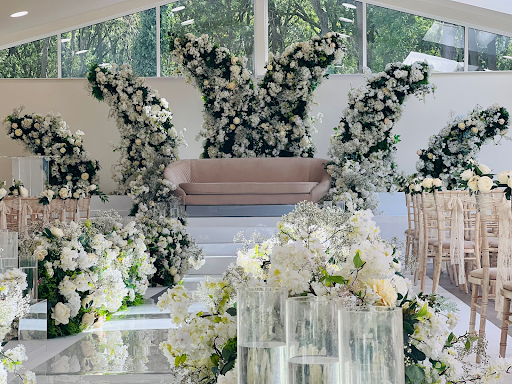
Decor Tip!
For your nikah decor, consider choosing colours that reflect your personal style and the atmosphere you wish to create. Soft, romantic tones like blush pink, ivory, or gold bring an elegant and timeless feel, while rich, bold colours such as deep reds or emerald greens can add a touch of cultural tradition and vibrancy.
When it comes to flowers, classic choices like roses or lilies offer sophistication, while jasmine or marigolds provide a more traditional and culturally significant look. Incorporating flowers with personal or symbolic meaning to you and your partner can add a unique, heartfelt touch to the overall decor, making the event truly special.
Post-Nikah Rituals
After the Nikah ceremony, the celebration continues with a few meaningful and heartwarming rituals that add to the excitement of the newlyweds’ union. These moments are all about transitioning from individuals to a couple and embracing the support of family, faith, and tradition.
Bride Unveiling
In some cultures, there's a special moment when the groom sees the bride’s face for the first time after the Nikah. This unveiling is often filled with excitement and emotion, making it a beautiful, intimate moment for the couple. It’s a simple yet symbolic gesture where the groom finally sees his bride as his life partner, adding to the magic of their new beginning.
First Prayer Together
For many couples, the first thing they do as husband and wife is pray together. This is a significant moment where they seek Allah’s blessings for their life ahead. Standing side by side in prayer reflects their shared faith and commitment, and it’s a grounding way to start their journey together.
Blessings from Family and Guests
After the Nikah, family members and guests surround the couple to offer their congratulations and blessings. Elders especially take this opportunity to share their wisdom, prayers, and well-wishes. These blessings mean a lot, as they come from the heart and represent the love and support of everyone who’s there to celebrate with the couple.
Attending a Nikah for the First Time?
Attending a nikah for the first time can be a beautiful experience, but it might also leave you wondering about what to wear, what to bring, and how to participate respectfully. Here are some helpful tips to ensure you feel comfortable and engaged during the ceremony.
Understanding the Nikah Ceremony
A typical nikah ceremony lasts about 20 to 30 minutes, providing a concise yet meaningful celebration of the couple’s union. However, the entire event, including pre-ceremony activities like guest arrivals and post-ceremony celebrations, may extend well beyond this timeframe. Guests should expect to spend additional time mingling with friends and family before and after the actual ceremony, creating a warm and communal atmosphere.
As Islam's liturgical language, Arabic may be used for many components of the nikah, including Quranic recitations and formal vows. This is particularly common in more traditional settings, where preserving the original language of Islamic texts is emphasised.
Often, a blend of Arabic and the local language is used. For example, Quranic verses may be recited in Arabic, while the sermon and marriage vows are delivered in the local language. This combination helps honour the religious aspects of the nikah while ensuring that the message resonates with all guests.
What to wear to a Muslim wedding
Dressing appropriately is essential when attending a nikah ceremony, as modesty is a key principle in Islamic culture. Here are some detailed guidelines to help you choose suitable attire for both women and men, ensuring that you respect the occasion and the customs of the couple’s families.
For Women
Long, Loose-Fitting Dresses or Trousers: Opt for long, flowing dresses or loose-fitting trousers paired with a long-sleeved top. This style maintains modesty while allowing for comfort and ease of movement throughout the event. Maxi dresses are a popular choice, as they offer elegance and coverage.
Headscarf: While it may not be mandatory for all female guests, wearing a headscarf can be a respectful gesture, particularly in a mosque setting. If you choose to wear one, select a scarf that complements your outfit and matches the overall theme of modesty.
Avoid Low Necklines and Tight Clothing: Avoid wearing outfits with low necklines, short sleeves, or overly tight clothing, as these do not align with the principles of modesty. Instead, select designs that provide ample coverage while allowing you to express your style.
Bright Colors and Festive Attire: Muslim weddings are often celebratory events, so embrace bright colours and festive attire. Floral patterns, rich fabrics, and vibrant hues are generally welcomed, reflecting the joy of the occasion.
Accessories: Consider accessorising your outfit with tasteful jewellery and a stylish handbag. However, avoid overly extravagant pieces that may draw too much attention away from the couple.
For Men
Suit or Dress Shirt with Dress Pants: For men, a well-fitted suit or a dress shirt paired with dress pants is the standard attire for a nikah ceremony. Opt for classic colours like navy, grey, or black to lend a formal and respectful appearance.
Traditional Attire: In many cultures, traditional clothing such as a kurta (a long tunic) or thobe (a long robe) is appropriate and even preferred. These garments can be stylish and respectful, showcasing cultural heritage while adhering to modesty guidelines.
Avoid Shorts or Casual Attire: Avoid shorts, t-shirts, or overly casual clothing, as these may be deemed disrespectful in a formal wedding setting. Always aim for an appearance that reflects the significance of the occasion.
Shoes
Easy to Remove: When selecting shoes, choose styles that are easy to remove, as you may be required to remove them in prayer areas, especially if the ceremony is held in a mosque. Consider opting for dress shoes that provide comfort and style without being overly elaborate.
Avoid Flip-Flops or Casual Footwear: While comfort is essential, it’s best to avoid flip-flops or overly casual shoes. Instead, aim for closed-toe dress shoes or loafers that complement your outfit and maintain the overall formal tone of the event.
What to expect on the Wedding Day
If you're feeling a bit anxious about attending, there's no need to panic! Remember, this day is designed to be enjoyable and filled with happiness. Everyone around you is there to celebrate, and the atmosphere will be warm and welcoming.
That being said, it’s always good to be prepared, so in the following few sections, we will discuss what to expect when you arrive, during the ceremony and afterwards.
On Arrival
When you arrive at the nikah ceremony, it's important to make a good impression right from the start. Aim to arrive on time or even slightly early to show respect for the couple and their families. Arriving early lets you settle in, greet other guests, and catch up with friends before the ceremony begins.
Upon arrival, you may notice that there are often separate seating areas for men and women, especially in more traditional settings. This practice is rooted in cultural norms and religious customs, so adhering to these arrangements is essential. If you need help figuring out where to sit, simply follow the ushers' guidance. They are there to help direct guests and ensure everyone finds their appropriate place. If you’re sitting with other guests of the same gender, it fosters a sense of community and respect for the customs of the event.
In some venues, be prepared for a more casual seating arrangement, which may involve sitting on the floor. If this is the case, don’t be alarmed! Cushions are often provided to make your seating comfortable, allowing you to participate fully in the ceremony while respecting the setting.
During the Ceremony
Once the ceremony begins, it’s crucial to maintain a respectful silence, especially during significant moments such as prayers and Quranic recitations. A nikah is a sacred event, and maintaining a quiet demeanour helps create a peaceful atmosphere that allows everyone to focus on the meaning of the occasion.
Regarding photography, respecting the couple's wishes and any guidelines about taking photos during the ceremony is essential. Some couples prefer to keep the ceremony private and may ask that no photos be taken during the religious rituals. If photography is allowed, be discreet and avoid using flash to ensure you do not disrupt the solemnity of the moment.
Participation can vary, so be open to engaging in the ceremony as appropriate. You may be invited to say “Ameen” after prayers or join in other responses. Pay attention to the cues from the officiant and follow the lead of other guests to ensure you are participating appropriately.
After the Ceremony
After the nikah ceremony concludes, take a moment to congratulate the couple and their families. A warm smile and kind words can mean a lot to the newlyweds as they begin this new chapter in their lives. Offering your best wishes and expressing your happiness for them can be a heartfelt gesture that they will cherish.
There is often a reception or meal following the nikah, so be sure to check your invitation for specific details regarding this part of the celebration. This is typically a more relaxed and joyous occasion where you can enjoy delicious food and connect with other guests. Sharing stories and laughter during the reception allows everyone to celebrate the couple's union.
In some cultures, specific post-ceremony rituals may take place. These can vary widely, so observing respectfully and participating is important if invited. Whether it’s a cultural dance, traditional blessings, or other customs, being mindful and engaged will help you fully appreciate the richness of the celebration and show your support for the couple.
Common Questions about Muslim Weddings
Do I need to be Muslim to attend?
Generally, non-Muslims are welcome to attend and observe the ceremony.
Will there be alcohol?
Islamic weddings do not serve alcohol.
Can I bring a plus-one?
Check your invitation; if it doesn't specify a plus-one, it's best to ask the hosts.
How long will the event last?
This varies widely; the invitation should specify, but be prepared for events that may last several hours.
Is it okay to leave early?
If necessary, it's usually acceptable to leave after congratulating the couple, but try to stay for any meal that's offered.
Attending a nikah is an opportunity to witness a beautiful tradition and support the couple in their new journey. Approach the experience with an open mind and heart, and don't hesitate to ask questions respectfully if you're unsure about anything. Your presence and well-wishes matter most to the couple and their families.
Wedding Reception (Walima)
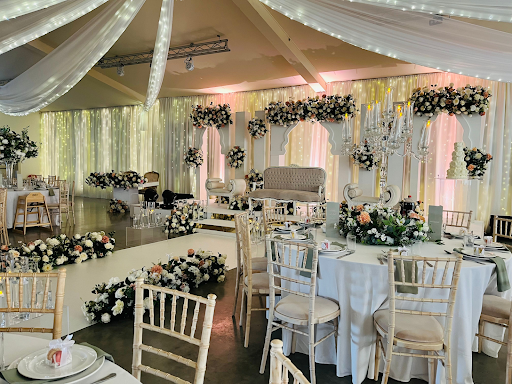
The Walima is a significant and joyous event that follows the Nikah, marking the couple’s first public appearance as husband and wife. It is essentially a wedding feast and a vital part of the marriage celebrations in Islamic tradition. The Walima brings together family, friends, and the wider community to share in the newlyweds' happiness and announce the marriage to the world.
Hosting Responsibilities
Traditionally, the responsibility of hosting the Walima falls on the groom and his family. They prepare the feast and invite guests as a gesture of goodwill and generosity. However, modern couples sometimes opt to host the Walima jointly or divide responsibilities between families, allowing them to collaborate in organising the event. Regardless of who hosts, the spirit of the Walima remains the same—bringing together loved ones to celebrate the marriage.
Timing
The timing of the Walima can vary based on family traditions and cultural practices. Some couples choose to hold the Walima immediately after the Nikah, while others may schedule it for a few days later, allowing time for additional preparations. In some cultures, the Walima is the final event in a series of multi-day wedding celebrations, marking the official conclusion of the festivities. Whether it happens right away or later, the Walima remains a highly anticipated and joyous occasion.
Guest List
The Walima is typically larger than the Nikah ceremony, as it is meant to bring together a broader group of people to share in the celebration. The guest list often includes extended family, close friends, and community members. In keeping with Islamic values, it is also considered virtuous to invite those less fortunate to partake in the feast, making the event not just a celebration but an act of charity and inclusiveness. This reinforces the idea of the Walima as a communal event where joy is shared with everyone.
What to expect at a Walima
If you’ve never attended a Walima, you’re in for a treat! Expect a warm atmosphere filled with cultural traditions, delicious food, and a deep sense of togetherness. From formal customs like Quranic recitations to more festive moments like the couple’s grand entrance, the Walima blends religious significance with celebration. Even if you’ve never been to one, you’ll quickly feel the joy and warmth of this special event, where everyone comes together to honour the couple’s new beginning.
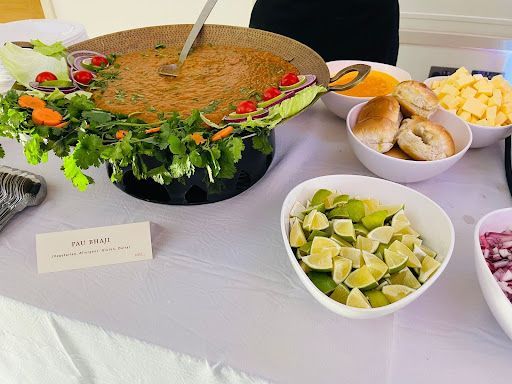
Food and Catering
A highlight of any Walima is the meal. The feast is central to the celebration, offering many traditional dishes that reflect the family’s culture and generosity. Guests can look forward to:
Menu Highlights
- Biryani: A spiced rice dish often served with meat.
- Meat Dishes: Including lamb, chicken, and beef to satisfy a variety of tastes.
- Vegetarian Options: Catered for those with dietary preferences.
- Desserts and Sweet Treats:
- Traditional sweets like gulab jamun and kheer provide a classic and flavorful finish.
- An assortment of modern sweet treats, such as Chocolate Fountains, a Churros Van, Pancakes, and Waffles, for an interactive and fun dessert experience.
- A beautifully crafted wedding cake to mark the occasion in style.
- Tea Selections:
No dessert spread is complete without tea! Guests can enjoy Masala Chai and Kashmiri Chai, offering rich, spiced flavors that perfectly complement the desserts.
The food is always halal, in keeping with Islamic dietary laws, and hosts often consider their guests' dietary restrictions to ensure everyone is included and cared for.

Catering Idea!
To make your Walima truly memorable, consider setting up a pani puri table! This interactive station allows guests to assemble their own pani puri, creating a fun and engaging experience. You can provide a variety of fillings, such as spiced potatoes, chickpeas, and tangy tamarind chutney, along with a selection of flavorful pani (spiced water) for guests to choose from.
At Ladywood Estate, we’re thrilled to partner with caterers who specialise in food for Muslim weddings. They ensure every mouthwatering halal dish is full of authentic flavour.
Program and Activities
A typical Walima follows a structured program, but there is always room for unique family traditions. The general flow of events may include:
- Guest arrival and seating: Guests are welcomed warmly and shown to their seats.
- Quranic recitation: The event often begins with a recitation from the Quran to bless the occasion.
- Welcome speech: The host, usually a family member, thanks the guests for attending.
- Dinner service: The much-anticipated meal is served.
- Speeches or toasts: In some cultures, family members or friends offer kind words and blessings for the couple.
- Couple’s entrance: The newlyweds make their entrance to cheers and applause.
- Cake cutting: In some traditions, couples cut a wedding cake together.
- Photo sessions:
These are a chance for the couple to take photos with their guests and capture the day's joy.
These activities create a celebratory atmosphere while also emphasising the religious and familial significance of the union.
Entertainment
Entertainment at a Walima can range from traditional performances to modern additions, depending on the couple's cultural background. Some popular entertainment options include:
- Nasheed: Islamic vocal music performed without instruments, adding a spiritual tone.
- Traditional music and dance: Cultural performances to celebrate the couple's heritage.
- Slideshows or videos: Highlighting the couple's journey or memories leading up to their wedding.
- Games and activities:
Some families organise fun games to engage guests and keep the celebration lively.
This entertainment helps create a joyful and engaging environment, making the Walima feel both festive and personal.
Make lasting memories with a wishing tree!
For a truly unique entertainment idea at your Walima, consider setting up a “wishing tree” or a “wishing wall” where guests can leave messages, blessings, or well-wishes for the couple. This interactive element allows your loved ones to express their hopes and advice for your future together in a creative way.
Gifts and Favours
It’s customary for guests to bring gifts for the newlyweds, and in return, many couples provide small favours or tokens of appreciation. This exchange is a thoughtful way to show gratitude and celebration. You might see:
- A designated area for guests to leave their gifts.
- Small tokens or favours like sweets or personalised mementoes as a thank-you from the couple.
This gesture of giving and receiving reflects the generosity and warmth of the occasion.
Wedding Favour Ideas!
One unique idea for wedding favours is to create personalised seed packets that guests can take home and plant. This thoughtful gift symbolises growth and new beginnings, perfectly reflecting your journey as a couple.
A delightful alternative for wedding favours is to create customised candles. Candles symbolise warmth, light, and love, making them a fitting memento for your guests to cherish.
You can choose scents that hold significance for you as a couple—perhaps the fragrance of a place that’s special to you or a scent reminiscent of a memorable date. Each candle can be personalised with your names, wedding date, and a meaningful quote or message that encapsulates your relationship.
Etiquette Considerations
As with any formal event, certain etiquette should be observed at a Walima. These traditions ensure that the event maintains its respectful, joyful atmosphere. Key considerations include:
- Dress code: Formal or semi-formal attire is expected, with modesty being paramount, especially for women.
- Seating arrangements: Men and women may be seated separately in more conservative settings.
- Photography: Be mindful of the privacy of other guests when taking photos, especially regarding photos of female guests.
- Speeches:
Speeches should be respectful and appropriate for a diverse audience and reflect the family-oriented and religious nature of the event.
These etiquette guidelines help create a respectful and welcoming environment for all guests.
Host Your Muslim Wedding at Ladywood Estate
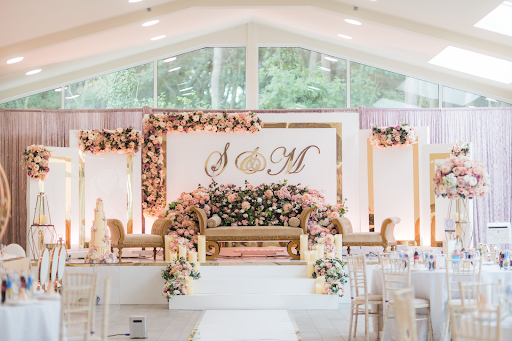
At Ladywood Estate, we take pride in being a cherished venue for your most significant life moments. Nestled amidst the rolling hills of the picturesque Midlands countryside, we’ve had the honour of hosting countless nikahs, walimas, and mehndi parties, each one uniquely special and filled with love. Our estate is not just a venue; it's a beautiful canvas upon which your dreams of a perfect wedding can come to life.
Our Commitment to You
With years of experience hosting a diverse range of celebrations, we understand the intricacies of organising a Muslim wedding. From the vibrant colours of the mehndi to the heartfelt vows exchanged during the nikah, we know that every detail matters. We are committed to ensuring your special day reflects your unique love story and cultural heritage.
A Network of Expertise
We’ve cultivated a strong network of trusted caterers and decor teams specialising in muslim weddings. These talented professionals are adept at creating exquisite culinary experiences that tantalise your taste buds and elevate your celebrations. From aromatic biryanis to delectable sweets, our caterers can craft a menu that will leave a lasting impression on your guests.
Our decor teams are equally skilled at transforming our stunning spaces into dreamy settings that resonate with your vision. Whether you desire a traditional aesthetic rich with cultural motifs or a contemporary twist on classic elements, we collaborate to ensure every detail aligns with your desires.
Stunning Spaces for Every Occasion
Our estate boasts a variety of enchanting venues, each designed to accommodate the different facets of your celebrations:
- The Pavilion: Ideal for your Walima ceremony, this elegant space offers ample room for both dining. Its adaptable design allows you to transform the space into a stunning setting that aligns with your vision. With enough capacity to accommodate all your loved ones, The Pavilion is perfect for creating memories filled with celebration and connection.
- The Orangery: Designed to host large Asian ceremonies with seating for up to 400 guests in a theatre-style arrangement. The south-facing glass wall opens onto a private terrace and adjoining woodland, offering picturesque views. Following your wedding ceremony, The Orangery can be reset for an afternoon tea party, an evening drinks reception, or later in the day for dessert stations, photo booths, and tea.
- Ladywood House: With its rich history and timeless interiors, Ladywood House provides a tranquil backdrop for pre-wedding events.
- Outside Terrace & Gardens: A lush outdoor setting where your guests can mingle and enjoy an al fresco reception. The terrace is ideal for a cocktail hour or casual gatherings surrounded by natural beauty.
- Brand New Italian Loggia:
This recent addition offers a romantic Mediterranean charm, making it a unique and picturesque space for your celebrations.
Making Memories with Exclusivity
We pride ourselves on providing an exclusive experience. With our policy of hosting only one event each weekend, you can be assured that your celebration receives our undivided attention. “No conveyor belt weddings at Ladywood” means your wedding will be intimate, allowing you to celebrate your love without the rush.
Book your Muslim Wedding Celebrations at Ladywood Estate
Let Ladywood Estate be the perfect backdrop for your love story. Whether you're planning a nikah, walima, or mehndi party, our experienced team is here to help you create a day that reflects your vision and values. We understand how important these moments are and are committed to making your wedding day as special as you’ve always imagined.
to start planning your celebration, and let’s work together to make it truly memorable.

